The following highlight the exciting research being conducted by faculty and students in the Department of Human Development and Family Sciences at the University of Texas at Austin.
Note: * denotes current/former graduate or undergraduate student in our HDFS department.
 |
Russell, S. T., & Fish, J. N. (2016). Mental Health in LGBT Youth. Annual Review of Clinical Psychology, 12. Today's LGBT youth come out at younger ages, and public support for LGBT issues has dramatically increased, so why do LGBT youth continue to be at high risk for compromised mental health? We discuss the contemporary context for LGBT youth and review the current science on LGBT youth mental health. Research on risk and protective factors point to promising directions for prevention, intervention, and treatment. Legal and policy successes set the stage for programs and policies that may foster LGBT youth mental health.
|
|
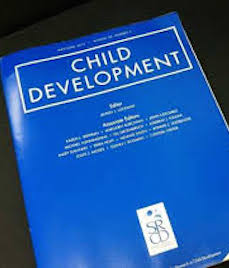 |
Benner, A.D. & *Wang, Y. (in press). Racial/ethnic discrimination and adolescents’ well-being: The role of cross-ethnic friendships and friends’ experiences of discrimination. Child Development. In this study, we observed that racial/ethnic discrimination perpetrated by teachers was detrimental for young people’s academics, whereas discrimination perpetrated by their peers was detrimental for young people’s mental health. Cross-ethnic friendships (having a close friend from another race/ethnic group) and friends’ experiences of discrimination generally served a protective role, chipping away at some of the negative effects of personally experienced discrimination on both adolescents’ mental health (how lonely and depressed they felt) and how attached and connected they felt to their schools. Results from this study highlight the importance of considering racial/ethnic-related aspects of adolescents’ friendships when studying interpersonal processes closely tied to race/ethnicity.
|
|
 |
Shen, Y., Kim, S., & Wang, Y. (2016). Intergenerational transmission of educational attitudes in Chinese American families: Interplay of socioeconomic status and acculturation. Child Development. Using data from 444 Chinese American families with teenagers 12-15 years old, we found that parents’ acculturation, highest levels of education, and family income jointly affected their educational attitudes. Parents’ educational attitudes then affected their teen’s educational attitudes four years later as well as teens’ grade point average and school engagement. In addition, teens who were more oriented toward the American culture were more receptive to the positive messages about education that their parents conveyed and were more likely to believe in the value of education.
|
|
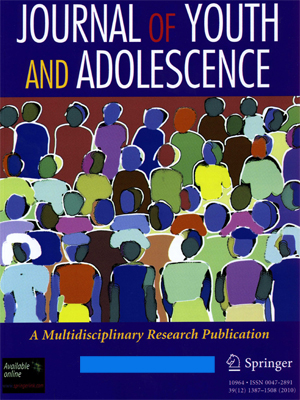 |
Benner, A. D., *Boyle, A. E., & *Sadler, S. (2016). Parental Involvement and Adolescents’ Educational Success: The Roles of Prior Achievement and Socioeconomic Status. Journal of Youth and Adolescence, 45, 1053-1064. This study found significant links between both parents’ school-based involvement and parental academic socialization when adolescents were in 10th grade and adolescents’ 12th grade GPA and educational attainment eight years later. Parents’ school-based involvement seemed to be particularly beneficial for more disadvantaged youth, such as those students from low-SES families or with poorer prior school achievement. In contrast, parents’ academic socialization seemed to better promote the academic success of more advantaged youth, such as those students from high-SES families or those with higher prior achievement.
|
|
 |
*Hou, Y., Kim, S. Y., & *Wang, Y. (2016). Parental acculturative stressors and adolescent adjustment through interparental and parent-child relationships in Chinese American families. Journal of Youth and Adolescence, 45, 1466-1481. Parental acculturative stressors (i.e., perpetual foreigner stereotype and bicultural management difficulty) positively related to parent-child conflict, either directly or indirectly through interparental conflict. Subsequently, both interparental and parent-child conflict positively related to a sense of alienation between parents and adolescents, which then related to more depressive symptoms, more delinquent behaviors, and lower academic performance in adolescents. The results highlight the indirect effects of maternal and paternal acculturative stressors on adolescent adjustment through family processes involving interparental interactions and parent-child relationships.
|
|
 |
Kim, S. Y. & *Hou, Y. (2016). Intergenerational transmission of tridimensional cultural orientation in Chinese American families: The role of bicultural socialization. Journal of Youth and Adolescence, 45, 1452-1465. Results support the tridimensional acculturation model by demonstrating moderate associations among Chinese American orientation, Chinese orientation, and American orientation; our findings also point to a unique effect of parental Chinese American orientation on parental bicultural socialization beliefs. Most importantly, we identified an indirect pathway from parental to adolescents’ Chinese American orientation through adolescents’ internalization of parental bicultural socialization beliefs.
|
|
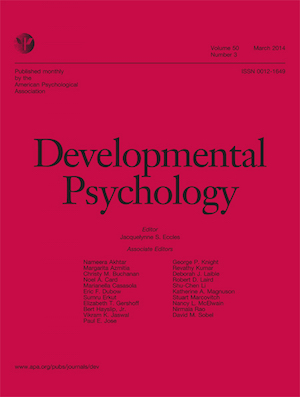 |
*Yan, N., & Dix, T. (in press). Mothers’ early depressive symptoms and children’s cognitive and social agency: Understanding first-grade cognitive functioning. Developmental Psychology. This study supports an agentic perspective; it demonstrates that mothers’ depressive symptoms in infancy predict children’s poor first-grade cognitive functioning because depressive symptoms predict children’s low social and cognitive agency—low motivation to initiate social interaction and engage actively in activities. When mothers’ depressive symptoms were high in infancy, children displayed poor first-grade cognitive functioning due to (a) tendencies to become socially withdrawn by 36 months and exhibit low in mastery motivation by 54 months, and (b) tendencies for children’s low agency to predict declines in mothers’ sensitivity and cognitive stimulation over time.
|
|
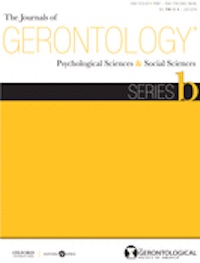 |
*Davis, E. M., Kim, K., & Fingerman, K. L. (in press). Is an empty nest best? Coresidence with adult children and parental marital quality before and after the Great Recession. The Journals of Gerontology: Psychological Sciences. This study compared the effects of having a grown child living at home in 2008 and 2013 on parents’ marriages. In 2008, before the Great Recession, parents who had an empty nest reported higher marital quality than parents who had a grown child living at home. During the Great Recession, coresidence between generations became more pervasive. By 2013, living with a grown child was not harmful to marital quality unless the coresident child was suffering from a life problem (e.g., divorce, addiction, job loss).
|
|
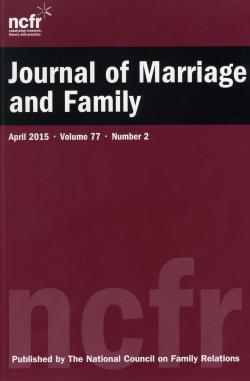 |
*Ansari, A., Purtell, K. M., & Gershoff, E. T. (in press). Parenting gains in Head Start as a function of initial parenting skill. Journal of Marriage and Family. The Head Start program was found to improve most parents’ reading practices and engagement in cognitive stimulation. However, depressive symptoms and spanking behavior showed improvements only among parents who began the Head Start program with the highest levels of depression and those who most frequently spanked their children. Findings suggest that treatment-induced changes in parenting can vary by parents’ incoming attributes.
|
|
 |
*Ansari, A., López, M. L., Manfra, L., Bleiker, C., Dinehart, L. H. B., Hartman, S. C. & Winsler, A. (in press). Differential third grade outcomes associated with attending publicly funded preschool programs for low-income, Latino children. Child Development. Although all Latino children performed reasonably well through the end of 3rd grade, those who attended public school pre-K in the Miami community at age 4 outperformed their classmates who attended center-based care on standardized tests. Public school pre-K participants also earned higher grades in 3rd grade. Findings suggest that public school pre-K participants were more likely to succeed in 3rd grade because they entered kindergarten with stronger academic skills, social-behavioral skills, and English language proficiency.
|
|
 |
Fingerman, K. L., Kim, K., Birditt, K. S., & Zarit, S. H. (2016). The ties that bind: Middle-aged parents’ daily experiences with grown children. Journal of Marriage and Family, 78, 430–450. This study looked at midlife parents’ daily interactions with their grown children each day for 7 days. Nearly every parent reported sharing a laugh and enjoyable interactions with grown children during the study week, but nearly half also had a stressful encounter or daily upsetting thoughts (worry, ruminating about a problem) regarding a grown child. These experiences with grown children were associated with the parents’ positive and negative mood at the end of the day. A positive interaction with a grown child often mitigated the effects of negative encounter, however.
|
|
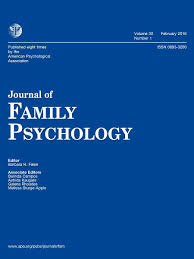 |
Gershoff, E. T., & Grogan-Kaylor, A. (2016). Spanking and child outcomes: New meta-analyses and old controversies. Journal of Family Psychology, 30, 453-469. Whether spanking is helpful or harmful to children continues to be the source of considerable debate among both researchers and the public. Meta-analyses focused specifically on spanking were conducted on a total of 111 unique effect sizes representing 160,927 children. Thirteen of 17 mean effect sizes were significantly different from zero, and all indicated a link between spanking and increased risk for detrimental child outcomes. Effect sizes did not substantially differ between spanking and physical abuse or by study design characteristics.
|
|
 |
Toomey, R. B., & Russell, S. T. (2016). The Role of Sexual Orientation in School-Based Victimization: A Meta-Analysis. Youth & Society, 48. School-based victimization is associated with poorer developmental, academic, and health outcomes. Results from 18 independent studies show that sexual minority youth experience moderately high levels of school-based victimization compared to heterosexual youth. The effects appear larger in more recent studies and for sexual minority boys. Future research on school-based victimization is needed, including interventions that address sexual orientation and discrimination.
|
|
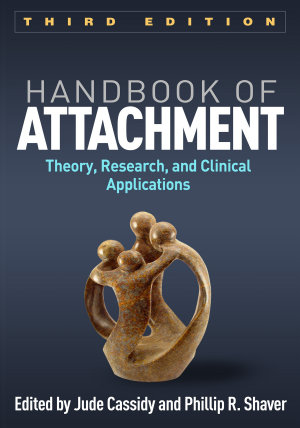 |
Lyons-Ruth, K., & Jacobvitz, D. (2016). Attachment Disorganization from Infancy to Adulthood: Neurobiological Correlates, Parenting Contexts, and Pathways to Disorder (pp. 667-695). In J. Cassidy & P. Shaver (eds.), Handbook of Attachment: Theory, Research and Clinical Applications (3rd Edition). New York: Guilford Press. This chapter presents data on the origin, correlates, and sequelae of attachment disorganization in infancy. If the behavior of the infant is not coordinated in a smooth way when approaching the caregiver for comfort, such that the infant displays contradictory (turning in circles, approaching with head averted) and fearful behavior (freezing of all movements, huddling on the floor), then it is considered disorganized. Family contexts, neurobiological correlates, and developmental outcomes in middle childhood and adulthood are discussed.
|









